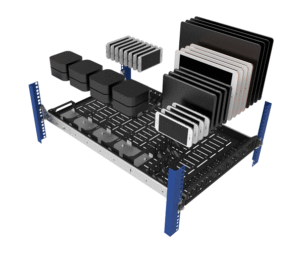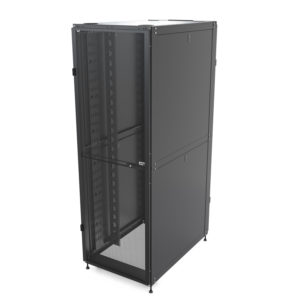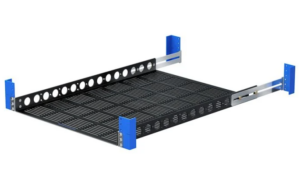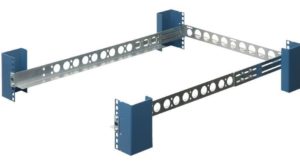From recording and mixing to mastering and sound design, every step in the audio engineering process plays a crucial role in delivering exceptional audio quality for music, film, and live events. With our modular rack shelf, audio engineers will have a flexible, streamlined, and effective solution for organizing and managing their gear.
What is Audio Engineering?
Audio engineering is the craft of recording, mixing, and producing sound to deliver high-quality audio experiences. Essentially, audio engineering is the process of applying electronic, digital, acoustic, and electrical principles to the recording and production of music, voices, and sounds. This technical and mechanical process involves manipulating sound by using specialized equipment and software to achieve a clear, well-balanced, and refined result.
What Does an Audio Engineer Do?
To begin with, audio engineers are responsible for capturing, mixing, and enhancing sound to ensure high-quality audio for various media productions. They handle everything from recording live sessions to adjusting sound levels and applying effects in post-production. Whether it’s for music, film, or live events, they use technical skills and creative judgment to shape the desired audio experience. This ensures that the final sound is perfectly tailored to the project’s needs. So what all duties and responsibilities does an audio engineer have?
Recording
First, audio engineers are responsible for setting up and operating recording equipment to capture high-quality sound recordings. They may work in recording studios, live concert venues, or on-location settings to record music albums, film dialogue, voiceovers, or sound effects.
Mixing
To create a balanced and cohesive audio mix, audio engineers mix a variety of sound elements together. In order to achieve the desired sound quality, they can adjust volume levels, apply equalization, add effects, and manipulate sound dynamics.
Editing
By editing and manipulating recorded audio files, audio engineers are able to remove imperfections, enhance clarity, and ensure seamless transitions between different sound elements. This editing process involves cutting, splicing, time-aligning, and pitch-correcting audio recordings.
Sound Design
To enhance the overall audio experience of a production, audio engineers create and manipulate sound effects. This process includes recording or synthesizing custom sound effects, along with layering, processing, and spatializing sound elements to produce immersive audio environments.
Live Sound Reinforcement
Audio engineers may work in live concert environments or other live events to set up and operate sound reinforcement systems. They ensure that both performers and audience members experience clear and balanced sound. Additionally, they manage sound levels and address any technical issues that arise during the live event.
Equipment Maintenance
And last but not least, audio engineers must maintain and troubleshoot audio equipment to ensure optimal performance. This involves routine maintenance tasks such as cleaning, calibration, and equipment repairs, along with keeping up with advancements in audio technology and best practices within the industry.
Types of Audio Engineers
Furthermore, audio engineers specialize in various areas, focusing on different aspects of sound production. Each type of engineer plays a significant role in achieving high-quality sound across different settings and media environments. The most common types of audio engineers are:
- Recording Engineers: Captures audio during recording sessions. They ensure that high-quality sound is captured from instruments and vocals.
- Mixing Engineers: Combines multiple audio tracks into a cohesive mix, adjusting levels, EQ, and effects. This helps to produce a balanced and polished final audio product.
- Mastering Engineers: Refines the final mix by optimizing the sound for various formats and platforms. This ensures consistency and quality across different playback systems.
- Live Sound Engineers: Manages audio equipment and systems for live events and concerts. They ensure clear and balanced sound for both performers and audience members, as well as handling any technical issues during the live performance.
- Broadcast Engineers: Ensures the smooth operation of audio and video equipment used in broadcasting, including television, online streaming, and radio stations. They oversee the setup, maintenance, and troubleshooting of broadcast equipment. To maintain high-quality broadcasts, they ensure compliance with technical standards and regulations
- Post-Production Engineers: Handles audio for film, television, and video games. They focus on dialogue editing, sound design, and integrating sound effects with visuals.
The Role of Data Centers for Audio Engineering
Moreover, audio engineering intersects with data centers and server rack equipment primarily through the need for reliable data storage, processing power, and system organization.
Storage and Processing
Audio projects, especially high-quality recordings, involve large files that require substantial storage and data processing capabilities. Server racks are crucial for storing and processing these files efficiently. This ensures fast access to data during recording, mixing, and mastering.
Audio Networking
In professional environments, digital audio is transmitted across networks. Data centers provide the infrastructure for these complex audio networks, enabling multiple devices and workstations to interact seamlessly for real-time audio routing and processing.
Remote Access and Collaboration
With server-based solutions, audio engineers can remotely access and manage their projects. This is beneficial for large studios or production companies where teams need to remotely collaborate from different locations. A server rack setup ensures that resources are centrally managed, scalable, and secure.
Data Backup and Redundancy
Audio projects are critical assets for audio engineers, so data centers offer secure backup and redundancy solutions. Server racks equipped with proper storage configurations provide engineers a sense of security, knowing that their work is protected from data loss.
Hardware Management
Rack shelves in server racks help organize and manage equipment like audio processors, storage drives, and networking gear. This simplifies processes and establishes a more effective procedure for engineers handling several audio equipment and servers.
RackSolutions Modular Rack Shelf
For audio engineers who need a more streamlined and effective audio production process, the RackSolutions Modular Rack Shelf provides audio engineers with a versatile, organized, and efficient way to manage their equipment. Our Modular Shelves are designed to optimize space and enhance organization by integrating hardware into a server rack, rather than relying on temporary improvised solutions.

You can maximize space when housing multiple devices on a single shelf with adaptable configurations tailored to your specific needs. In comparison to scattered devices, the modular device shelf increases both density and scalability, providing a more structured solution in comparison to scattered devices. Our modular device shelf can be beneficial for audio engineers in several ways such as:
- Organization: The modular shelves help keep audio equipment organized in a rack-mounted setup. This can include mixers, processors, amplifiers, and other types of gear. By keeping the audio equipment well-organized, this ensures that everything is easily accessible while minimizing setup and teardown time.
- Space Efficiency: Audio engineers typically work in environments where space is limited. The modular shelves allow for a customizable arrangement of audio equipment, optimizing the use of available space. This is particularly useful for small studios or on the road situations where space is limited.
- Cooling and Ventilation: Proper cooling and ventilation are crucial for audio equipment to function effectively and prevent excessive heat buildup. Modular shelves are designed to accommodate cooling solutions, such as fans or ventilated panels. This ensures that all equipment remains at a safe operating temperature.
- Flexibility and Expansion: As new equipment is added, the modular shelving systems can be easily reconfigured or expanded. This flexibility is beneficial for audio engineers who frequently update their gear or need to adjust their setup for different projects.
- Cable Management: The modular shelves come equipped with cable management features. This helps to maintain a neat workspace and reduce the risk of cable damage. Good cable organization also simplifies troubleshooting and gives the setup a more professional appearance.
Additional Mounting Equipment
To help manage your servers, storage systems, or any additional equipment, we provide a wide range of server racks, server rack rails, and rack shelves for your specific needs.
- Racks: Our 4 Post and 2 Post racks are an effective way to mount your equipment. We provide open frame racks, enclosed racks, and wall mount racks.

- Shelves: We provide rack shelves that come in different sizes and configurations to serve a wide variety of needs. To store your servers on the rack, you can choose between our fixed shelf or sliding shelf.

- Rails: Server rack rails are a great way to mount your servers in a 4 post or 2 post rack.

We provide a large selection of rails, rail kits, and universal rails.
FAQs: Audio Engineering
How can server racks enhance organization in an audio engineering setup?
Server racks allow audio engineers to neatly organize and house equipment. Equipment may include audio interfaces, processors, and network gear. This reduces clutter, improves airflow, and makes it easier to manage and expand equipment as needed.
Can data center solutions improve scalability in audio engineering?
Yes, data center solutions provide scalability, allowing audio engineers to effortlessly incorporate or enhance their equipment as their requirements expand. This flexibility is essential for staying up to date with evolving audio technology and expanding project demands.
